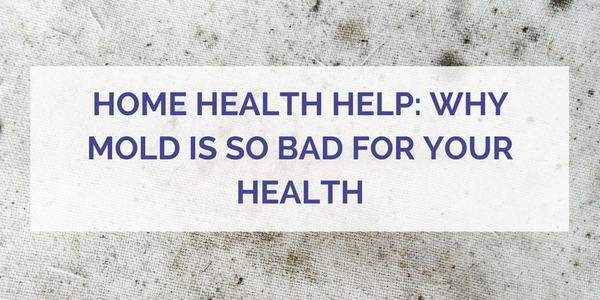
Mold in the home is the result of excess moisture caused by condensation or water leaks, and it’s a nasty business. At best, it is a messy, and often smelly problem. It can leave you with unpleasant dirty patches on walls, carpets, wallpaper, upholstery or wood work and can also cause an unpleasant musty odour which can be very difficult to get rid of. At worst, however, the problem of mold goes beyond aesthetics, it could seriously damage your health.
In this blog, we explain what mold is, why it is so bad for your health, and what you can do about it.
What is mold?
Mold is a fungal growth. It is a result of excess moisture in the home caused by condensation or water leaks. Excess moisture is a major problem in many houses, particularly if there is poor ventilation. Moisture in the air from bathrooms, kitchens or drying laundry, causes condensation on windows and walls which, left unaddressed, can lead to the formation of mold.
Mold can be a particular problem in the winter months when the fluctuations in temperature between inside and outside are at their worst. This problem, coupled with the fact that we are less likely to open windows, (allowing ventilation) can cause a major condensation problem.
Mold needs dampness, darkness and poor ventilation to grow. So obviously, bathrooms and kitchens are often the places where mold growth is at its worst. It will prosper in places that absorb moisture and take longer to dry out, such as porous materials like walls, timber, carpets, furniture, and fabrics.
Why is mold so bad for health?
Mold affects people in different ways. For some, it is nothing more than an irritation, usually revealing itself in the form of an itchy nose and sneezing.
For others, however, particularly those susceptible to allergies, mold can be a dangerous health problem, causing long-term health conditions and affecting the immune system. Mold produces allergens and micro toxins that can cause a range of health concerns:
• Respiratory conditions such as chronic coughs, wheezing and asthma attacks.
• Skin complaints like rashes, itching, red eyes and dermatitis.
• Sinus problems such as sneezing, runny nose or itchy nose.
• Tiredness and fatigue.
• Low immune system, which can result in an increased susceptibility to illness.
What should you do about it?
If you are suffering from any of the conditions discussed in this article you should visit your GP, who will be able to recommend treatments.
It is important to address the cause of your mold problem and remove the mold from your home. We have written an article specifically on this subject available on the Time For You blog. 10 Tips to Eradicate Mold from Your Home is our guide on how you can get rid of mold and prevent it from forming in the first place.
Written by Mike Pye